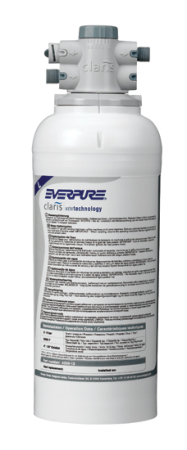 Every single morning before arriving to work, Amy stops by her local Starbucks and orders her usual venti latte. They know her there by name and are happy to send her on her way with her triple espresso shot drink. Amy said that her morning espresso kick starts her day and without it, well, you would probably find her half asleep at her desk, struggling to focus on her work.
Every single morning before arriving to work, Amy stops by her local Starbucks and orders her usual venti latte. They know her there by name and are happy to send her on her way with her triple espresso shot drink. Amy said that her morning espresso kick starts her day and without it, well, you would probably find her half asleep at her desk, struggling to focus on her work. 
 Did you also know that Espresso is 90% water! It is a key essential ingredient in espresso preparation. So having a water filtration system becomes a must, especially in areas with hard water. Not having filtered water will affect the taste of your espresso as well as the lifespan of your equipment. So what is the best water filtration system for your espresso machine? Well, here’s a couple options to consider: The Claris System
Did you also know that Espresso is 90% water! It is a key essential ingredient in espresso preparation. So having a water filtration system becomes a must, especially in areas with hard water. Not having filtered water will affect the taste of your espresso as well as the lifespan of your equipment. So what is the best water filtration system for your espresso machine? Well, here’s a couple options to consider: The Claris System  5-Stage Filtration Process
5-Stage Filtration Process
- Pre-filtration
- Carbonate hardness adjustment
- Fine filtration
- Highly efficient carbon block removes harmful contaminant and unpleasant odors and tastes
- Solid membrane filter removes particles down to 5 micron for highest equipment protection
- Operates in vertical or horizontal position
- Utilizes ion exchange resin with buffering capabilities and high capacity coconut carbon filtration.
- A small amount of carbon filtered water bypasses softening resin to allow proper initial hardness.
- Buffering prevents water from becoming too acidic.
- It also reduces hardness in water that can cause minerals to build-up in espresso equipment.
- It also reduces chlorine, off tastes and odors. Cartridge replacement is simple, quick and clean.







